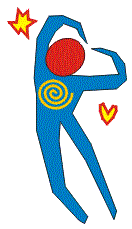"All we know is still infinitely less than all that still remains unknown." ~ William Harvey
The founder of modern experimental physiology, physician William Harvey (1578-1657) was born to a wealthy family on this day in Folkestone, Kent, England. He received his Cambridge medical degree in 1602.
"True philosophers who are burning with love for truth and learning never see themselves... as wise man, brim full of knowledge," he observed and was inspired by the methodology of Aristotle.
With a medical practice in London, he explored many radical ideas and even had the courage to examine then exonerate some suspected witches of his time.
A physiologist and anatoist, in 1628 he printed a revolutionary 72-page booklet, Exercitatio anatomica de motu cordis et sanguinis in animalibus, which explained the closed circulation of blood in mammals, moving from the arteries to veins to the pumping heart, the center of the body.
The heart, he discovered, "is the household divinity which, discharging its function, nourishes, cherishes, quickens the whole body, and is indeed the foundation of life, the source of all action."
Harvey's thesis contradicted the philosophy of the renowned ancient Greek physician, Galen, who said food was converted to blood in the liver.
With work was done through observations and without the aid of a microscope, Harvey helped build the foundation for the understanding of the circulation and furthered the development of modern medicine and research.
 Celebrate the unknown and be willing to open your heart to it!
Celebrate the unknown and be willing to open your heart to it!
